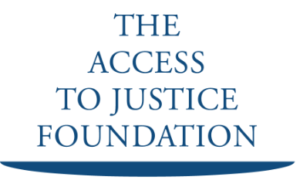The Solicitors’ Regulation Authority (SRA) has announced that its Legal Access Challenge, launched in collaboration with Nesta Challenges in 2019, has identified great potential to utilise technology to aid access to justice.
The conclusions come in a report published today by the SRA, alongside detailed analysis from Nesta Challenges, on the 18-month Legal Access Challenge. The challenge included a £500,000 prize fund to find tech solutions to help individuals and small businesses with legal problems. A core aim of the challenge was gaining insight into how legal technology is being used and the effect of regulation on innovation.
The £500,000 Legal Access Challenge was created to support innovative digital technology solutions that directly help individuals and SMEs to better understand and resolve their legal problems. The SRA and Nesta Challenges has ‘bolstered the Solicitors Regulation Authority’s and Nesta Challenges’ view that legal technology can help people to more easily access legal services’.
The reports conclude that the SRA’s regulation is not a barrier to innovation, but that many find it difficult navigating overlapping regulatory regimes across, for example, legal services, financial services and information management.
Anna Bradley, SRA Chair and Chair of the challenge judging panel said:
“Too many individuals and small businesses struggle to access expert help when they need it. This can be the difference between someone losing their job, home or family; or a business succeeding or failing.
“I believe tech will be a game-changer for access to legal support. Covid-19 has bought into even sharper focus the importance of digital solutions. However, it’s clear that the adoption of technology has been slow when it comes to public facing legal services.
The challenge also showed that innovation in public facing legal technology is mainly coming from unregulated organisations. Many were, however, uncertain about the boundaries around regulated legal advice and how they could involve regulated solicitors in their offer. They also need help getting user feedback – this was the most common area where applicants requested support (66%).
What do individuals & SMEs want?
Engagement with individuals and small businesses showed that they were open to getting legal help through technology, although some were more cautious if it was provided by an unregulated business. They also expect tech support to be free or to be charged at a modest fee – key information for innovators, who are exploring models ranging from subscription services to freemium models where some services are free but bespoke aspects are paid-for.
The reports show that the challenge also achieved its other two aims of accelerating legal tech solutions for the public and small business, while also encouraging collaboration. The scale and diversity of interest in the challenge – with 117 applications – resulted in the Regulators Pioneer Fund providing an additional £250,000 of funding.
Feedback on the challenge from the eight finalists showed:
- seven had seen the development of their solution accelerated
- seven had been introduced to new and useful contacts, with five building new partnerships
- six had support that they would otherwise would not have been able to access.
A network was also built beyond the winners, with more than 360 engaging through the challenge. This included through networking events, roundtables and a Slack group enabling online collaboration. Around a third of applicants met new contacts.
The SRA report sets out its next steps, including producing guidance to help innovators understand its rules, the requirements of overlapping regimes and how they can design products that enable regulated law firms to interact with them. It will also continue to work closely with other regulators and build networks. This includes being part of recently announced Lawtech Sandbox developed by Tech Nation.
Bradley said:
“The challenge showed the range of ideas out there, and the potential for it to help people in vulnerable situations.
“I was pleased that our own regulation is not seen as a barrier to the development of tech in the legal sector but we want to do more to support innovators to navigate what can be complex and overlapping regulation, for example, across financial and legal services and information management. The insights from the challenge will stand us in good stead as we look ahead to encouraging the growth of legal technology in future.”
Chris Gorst, Director of Challenges, Nesta Challenges, added:
“The Legal Access Challenge…has sparked a crucial conversation with the legal sector on how we widen access to legal services and we are pleased the insights we’ve gathered are helping inform the SRA’s policies so they can support even more innovators in future.
“Importantly, the Legal Access Challenge has helped to build an ever-growing community of law-tech innovators, passionate about improving access to justice. I’m sure that this entrepreneurial spirit will make a positive impact on the way individuals and small businesses resolve their legal problems in the years to come.”
The two final winners were announced in April 2019. The winning teams were RCJ Advice for its collection of digital tools that enable survivors of domestic abuse to get legal support, and Mencap and Access Social Care for their virtual assistant which helps people to understand and exercise their social care rights.
The SRA has said it is considering an application for the second round of the Regulators Pioneer Fund.









